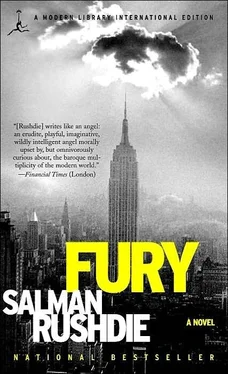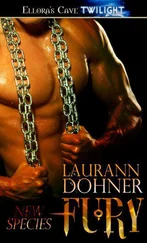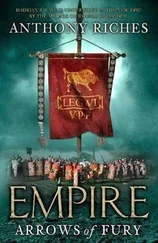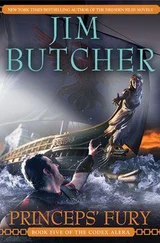Salman Rushdie - Fury
Здесь есть возможность читать онлайн «Salman Rushdie - Fury» весь текст электронной книги совершенно бесплатно (целиком полную версию без сокращений). В некоторых случаях можно слушать аудио, скачать через торрент в формате fb2 и присутствует краткое содержание. Город: New York, Год выпуска: 2002, ISBN: 2002, Издательство: Random House Publishing Group, Жанр: Современная проза, на английском языке. Описание произведения, (предисловие) а так же отзывы посетителей доступны на портале библиотеки ЛибКат.
- Название:Fury
- Автор:
- Издательство:Random House Publishing Group
- Жанр:
- Год:2002
- Город:New York
- ISBN:0679783504
- Рейтинг книги:5 / 5. Голосов: 1
-
Избранное:Добавить в избранное
- Отзывы:
-
Ваша оценка:
- 100
- 1
- 2
- 3
- 4
- 5
Fury: краткое содержание, описание и аннотация
Предлагаем к чтению аннотацию, описание, краткое содержание или предисловие (зависит от того, что написал сам автор книги «Fury»). Если вы не нашли необходимую информацию о книге — напишите в комментариях, мы постараемся отыскать её.
Fury — читать онлайн бесплатно полную книгу (весь текст) целиком
Ниже представлен текст книги, разбитый по страницам. Система сохранения места последней прочитанной страницы, позволяет с удобством читать онлайн бесплатно книгу «Fury», без необходимости каждый раз заново искать на чём Вы остановились. Поставьте закладку, и сможете в любой момент перейти на страницу, на которой закончили чтение.
Интервал:
Закладка:
Day after day, Malik visited the Rijksmuseum dollhouses. Never before in his life had he thought of making anything with his hands. Now his head was full of chisels and glue, rags and needles, scissors and paste. He envisioned wallpaper and soft furnishings, dreamed bedsheets, designed bathroom fixtures. After a few visits, however, it became clear that mere houses would not be enough for him. His imaginary environments must be peopled. Without people there was no point. The Dutch dollhouses, for all their intricacy and beauty, and in spite of their ability to furnish and decorate his imagination, finally made him think of the end of the world, some strange cataclysm in which property had remained undamaged while all breathing creatures had been destroyed. (This was some years before the invention of that ultimate revenge of the inanimate upon the living, the neutron bomb.) After he had this idea, the place began to revolt him. He started imagining back rooms in the museum filled with giant heaps of the miniature dead: birds, animals, children, servants, actors, ladies, lords. One day he walked out of the great museum and never went back to Amsterdam again.
On his return to Cambridge he immediately started to construct microcosms of his own. From the beginning his dollhouses were the products of an idiosyncratic personal vision. They were fanciful at first, even fabulist; science-fiction plunges into the mind of the future instead of the past, which had already and unimprovably been captured by the miniaturist masters of the Netherlands. This sci-fi phase didn’t last long. Solanka soon learned the value of working, like the great matadors, closer to the bull; that is, using the material of his own life and immediate surroundings and, by the alchemy of art, making it strange. His insight, which Eleanor would have called a “lightbulb moment,” eventually led to a series of “Great Minds” dolls, often arranged in little tableaux—Bertrand Russell being clubbed by policemen at a wartime pacifist rally, Kierkegaard going to the opera for the interval so that his friends didn’t think he was working too hard, Machiavelli being subjected to the excruciating torture known as the strappado, Socrates drinking his inevitable hemlock, and Solanka’s favorite, a two-faced, four-armed Galileo: one face muttered the truth under its breath, while one pair of arms, hidden in the folds of his garments, secreted a little model of the earth spinning around the sun; the other face, downcast and penitent under the stern gaze of the men in the red frocks, publicly recanted its knowledge, while a copy of the Bible was tightly, devoutly clutched by the second pair of arms. Years later, when Solanka quit the academy, these dolls would go to work for him. These, and the questing knowledge-seeker he created to be their television interrogator and the audience’s surrogate, the female time-traveling doll Little Brain, who afterward became a star and sold in large numbers around the world.
Little Brain, his hip, fashion-conscious, but still idealistic Candide, his Valiant-for-Truth in urban-guerrilla threads, his spiky-haired girl Basho journeying, mendicant bowl in hand, far into the Deep North of Japan.
Little Brain was smart, sassy, unafraid, genuinely interested in the deep information, in the getting of good-quality wisdom; not so much a disciple as an agent provocateur with a time machine, she goaded the great minds of the ages into surprising revelations. For example, the favorite fiction writer of the seventeenth-century heretic Baruch Spinoza turned out to be P G. Wodehouse, an astonishing coincidence, because of course the favorite philosopher of the immortal shimmying butler Reginald Jeeves was Spinoza. (Spinoza who cut our strings, who allowed God to retire from the post of divine marionettist and believed that revelation was an event not above human history but inside it. Spinoza who never wore unsuitable shirts or ties.) The Great Minds in The Adventures of Little Brain could be time-hoppers, too. The Iberian Arab thinker Averroes, like his Jewish counterpart Maimonides, was a huge Yankees fan.
Little Brain went too far just once. In her interview with Galileo Galilei, she, in the beer-swilling, trash-talking fashion of the new ladettes, offered the great man her own nobody-fucks-with-me point of view on his troubles. “Man, I wouldn’t have taken that stuff lying down,” she leaned toward him and fervently said. “If some pope had tried to get me to lie, I’d have started a fucking revolution, me. I’d have set his house on fire. I’d have burned his fucking city down.” Well, the bad language got toned down—to “freaking”—at an early stage of production, but that wasn’t the problem. Arson at the Vatican was too much for the bosses of the airwaves to bear and Little Brain suffered, for the first time, the numbing indignities of censorship. And could do nothing about it except, perhaps, to mutter the truth along with Galileo: it does too move. I would too let it all go up in flames…
Rewind to Cambridge. Even “Solly” Solanka’s first efforts—his space stations and podlike domestic structures for assembly on the moon-displayed qualities of originality and imagination which, in the loud dinner-table opinion of a French Lit specialist who was working on Voltaire, were “refreshingly absent” from his scholarly work. The quip raised a big laugh from everyone within earshot.
“Refreshingly absent.” This is the Oxbridge way of speech, this easy, bantering offer of insults which are simultaneously not at all serious and in deadly earnest. Professor Solanka never grew accustomed to the barbs, often received terrible injuries from them, always pretended he saw the funny side, never once saw it. Oddly, this was something he had in common with his Voltairean assailant, the alarmingly named Krysztof Waterford-Wajda, known as Dubdub, with whom he had in fact forged the most unlikely of friendships. Waterford-Wajda, like Solanka, had gotten the hang of the expected conversational style under the pressure of their ferocious peer group, but he too remained uncomfortable with it. Solanka knew this, and so didn’t hold “refreshingly absent” against him. The laughter of the listeners, however, he never forgot.
Dubdub was jovial, Old Etonian, loaded, half-Hurlingham Club deb’s delight, half-Polish glowerer, the son of a self-made man, a stocky immigrant glazier who looked, talked, and drank like a backstreet fighter, made his bundle in double glazing, and married amazingly well, to the horror of the country-house set (“Sophie Waterford’s married a Pole!”). Dubdub had floppy-haired Rupert Brooke good looks marred by a lantern jaw, a wardrobe full of loud tweed jackets, a drum kit, a fast car, no girlfriend. At a freshers’ ball in his first term, emancipated young sixties women refused his invitations to dance, prompting him to cry out, plaintively, “Why are all the girls in Cambridge so rude? “To which some heartless Andree or Sharon replied, “Because most of the men are like you.” In the dinner line, hooray-Henry playfully, he offered another young beauty his sausage. To which she, this deadpan Sabrina, this Nicki used to blowing off unwanted admirers, without turning a hair retorted sweetly, “Oh, but there are some animals I simply never eat.”
It has to be admitted that Solanka himself had been guilty of needling Dubdub more than once. On their joint graduation day in the liberated summer of 1966, when gowned and elated and hemmed in by parents on the college front lawn they were allowing themselves to dream the future, innocent Dubdub astonishingly announced his intention of becoming a novelist. “Like Kafka perhaps,” he mused, grinning that big upper-class grin, his mother’s hockey-captain grin which no shadow of pain, poverty, or doubt had ever darkened and which sat so incongruously below his paternal inheritance, the beetling, dark eyebrows reminiscent of untranslatable privations endured by his ancestors in the unglamorous town of Lodz. “In the Rat Hole. Construction of a Machine Without a Purpose. Fury. That sort of thing.”
Читать дальшеИнтервал:
Закладка:
Похожие книги на «Fury»
Представляем Вашему вниманию похожие книги на «Fury» списком для выбора. Мы отобрали схожую по названию и смыслу литературу в надежде предоставить читателям больше вариантов отыскать новые, интересные, ещё непрочитанные произведения.
Обсуждение, отзывы о книге «Fury» и просто собственные мнения читателей. Оставьте ваши комментарии, напишите, что Вы думаете о произведении, его смысле или главных героях. Укажите что конкретно понравилось, а что нет, и почему Вы так считаете.











